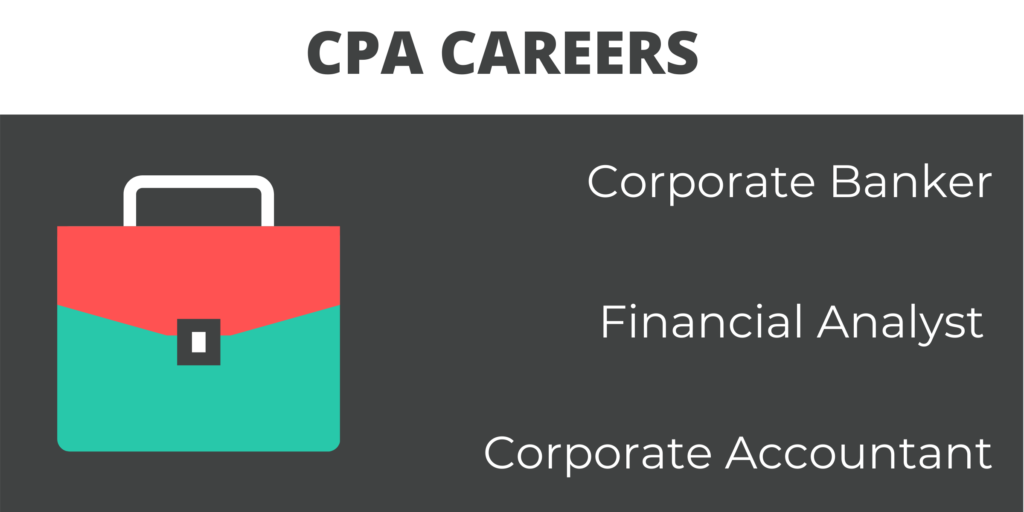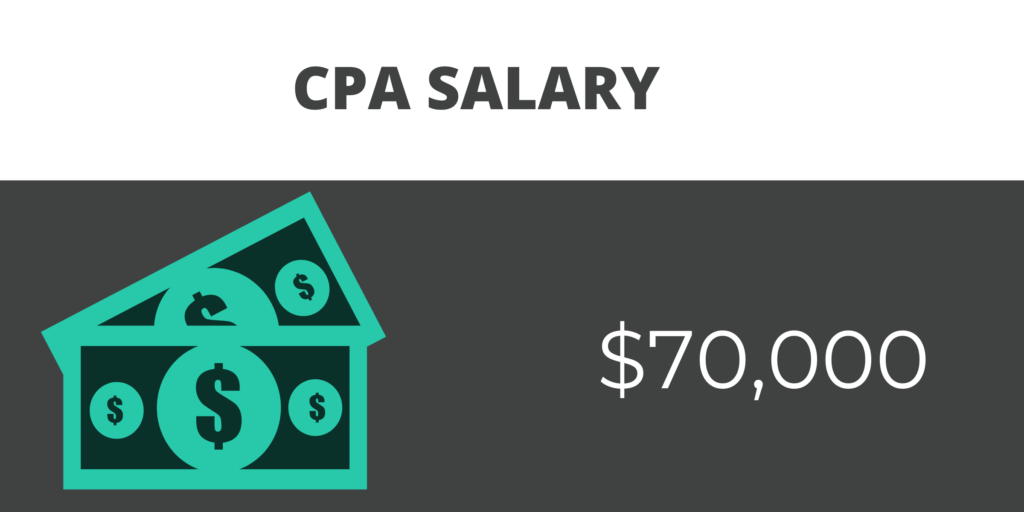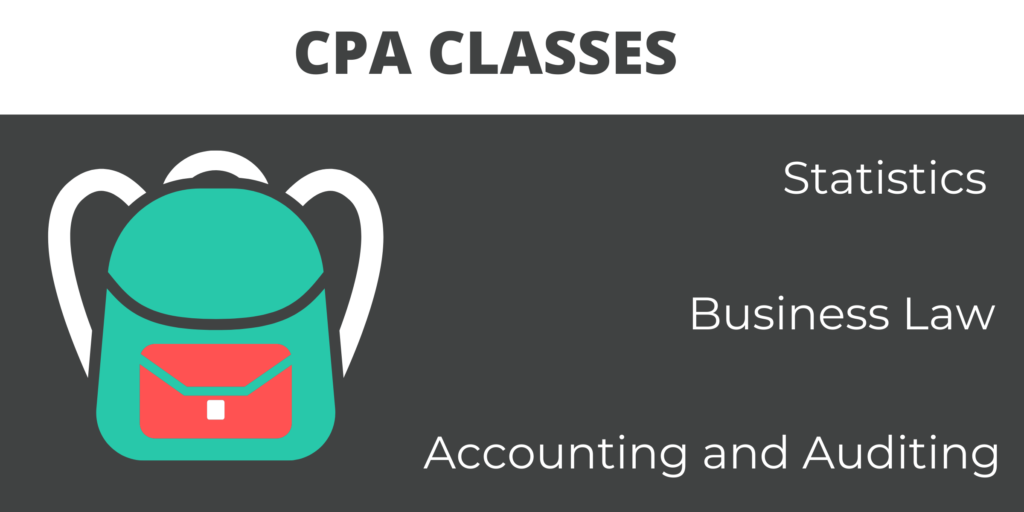What is a Certified Public Accountant?
The first CPA licenses were earned in 1896. Today, professionals who pass the Uniform CPA Examination and fulfill a requisite education will be acknowledged by the American Institute of Certified Public Accountants (AICPA). These professionals take on the title of Certified Public Account (CPA) and are free to work as a CPA within various work environments and business settings. The designated title and certification of CPA enforces a high standard of practice and standard of ethics, so that CPAs who breach these standards are in risk of losing their title.
A CPA will typically work in the accounting department of an organization–preparing taxes, carrying out audits, or assisting clients with budgeting or other fiscal strategies. While accountants working in corporate accounting or in private companies are not required to have the CPA designation, public accountants working at accounting firms must have a CPA license in order to assist businesses with accounting needs and tax-related services.
The Securities and Exchange Commission (SEC) requires all publicly traded companies to provide financial reports that have been endorsed by accounting professionals. So there is an established and secure need for accounting professionals in any industry that conducts business or operates with fiscal concerns–that is to say, there is a need for accounting professionals in every industry. And in this guide, we will explore exactly what one can do with an accounting degree–the best career outcomes and how to reach them.
Professional Paths in Accounting

Many accountants will choose to specialize in one area or another of the profession in order to either target higher salaries or to move into a more stable area of the job market. Some of the common career paths for an accountant include: auditor, controller, accounting clerk, forensic accounting, or personal finance. Continue reading for a more extensive breakdown of accounting specialization options.
If you are interested in the various career paths within the accounting profession and the difference between these paths, consider these additional resources:
- WHAT CAN I DO WITH A DEGREE IN ACCOUNTING?
- HIGHEST PAYING DEGREES IN ACCOUNTING – MAJORS & CAREERS
- 50 TOP SCHOLARSHIPS FOR ACCOUNTING DEGREES
- WHAT ARE THE TYPICAL DAILY DUTIES FOR AN ACCOUNTING CLERK?
- WHAT ARE THE TYPICAL DAILY DUTIES FOR AN ACCOUNTING CONTROLLER?
- WHAT ARE THE TYPICAL DUTIES FOR AN ACCOUNTING ASSISTANT?
- WHAT AREAS OF ACCOUNTING DO I NEED TO STUDY TO BECOME A CPA?
- WHAT IS A TYPICAL SALARY FOR AN ACCOUNTING ASSISTANT?
- WHAT IS A TYPICAL SALARY FOR AN ACCOUNTING CLERK?
- WHAT IS THE DIFFERENCE BETWEEN AN ACCOUNTING CLERK AND AN ACCOUNTING ASSISTANT?
- WHAT DOES AN ACCOUNTING CONTROLLER DO?
- WHAT IS A TYPICAL SALARY FOR AN ACCOUNTING CONTROLLER?
Consider these resources to better understand which accounting degrees lead to which jobs:
- WHERE CAN I WORK WITH A DEGREE IN FORENSIC ACCOUNTING?
- WHAT DEGREE DO PEOPLE WITH A JOB IN MANAGEMENT ACCOUNTING HAVE?
- WHAT DEGREE DO PEOPLE WITH A JOB IN PUBLIC ACCOUNTING HAVE?
- WHAT IS THE SALARY POTENTIAL FOR SOMEONE WITH AN ACCOUNTING DEGREE?
- WHAT KIND OF GOVERNMENT JOBS CAN YOU GET WITH AN ACCOUNTING DEGREE?
- WHAT KIND OF JOB CAN YOU GET WITH A DEGREE IN ACCOUNTING?
- WHAT KIND OF JOB CAN YOU GET WITH A DEGREE IN FINANCIAL ACCOUNTING?
- WHAT KIND OF JOB CAN YOU GET WITH A MASTER’S DEGREE IN ACCOUNTING?
- WHAT KIND OF JOB CAN YOU GET WITH AN ASSOCIATE’S DEGREE IN ACCOUNTING?
- WHAT NON-TAX JOBS CAN YOU DO WITH AN ACCOUNTING DEGREE?
The Accounting Industry – Small Business, Automation, and IT

According to CapitalCounselor, nearly 60% of small business ventures admit that they do not know enough about finances, accounting, or tax-related responsibilities. This staggering statistic is a likely player in the unfortunate reality of business failure rates, that is, around 90% of all businesses fail within the first ten years. If the majority of businesses are making decisions based on incomplete knowledge of accounting and finance it is understandable why this failure rate is so high.
For this reason, more accountants are finding work with small businesses, whose owners recognize a sufficiency in their accounting know-how. This has driven a surge of growth in accounting firms that offer affordable consultancy and accounting services to small-to-midsize businesses. Other notable growth is occurring in the sector of the accounting industry that looks to adapt the latest IT software and technology.
Specifically, a large number of accounting professionals report that they believe the industry is moving in a direction to adopt cloud accounting technology. This points to a continued evolution of the accounting profession where more of a single accountant’s responsibility-load can be entirely automated either by a single software tool or by an interconnectivity of applications. This has driven some speculation as to whether the accountancy profession is in danger of being replaced by automation.
These worries have been at least partially assuaged by the adaptivistic response of the industry. Accountant professionals have been able to leverage burgeoning automation technology to take on larger responsibility loads, thereby increasing their professional value as a worker. In other words, accounting professionals with automation technology are more productive than automated accounting on its own.
Consider these additional resources on accountancy jobs and salaries:
- WHAT SHOULD YOU KNOW WHEN YOU INTERVIEW FOR A JOB WITH A DEGREE IN ACCOUNTING?
- WHAT ARE THE BENEFITS OF PURSUING A DEGREE IN ACCOUNTING?
- WHAT ARE THE BENEFITS OF PURSUING A MASTER’S DEGREE IN ACCOUNTING?
- WHAT ARE THE BENEFITS OF PURSUING AN ASSOCIATE’S DEGREE IN ACCOUNTING?
- WHAT ARE THE EASIEST DEGREES TO GET IN ACCOUNTING?
- WHAT ARE THE HIGHEST PAYING JOBS IN ACCOUNTING AND AUDITING?
- WHAT ARE THE HIGHEST PAYING JOBS WITH A MASTER’S DEGREE IN ACCOUNTING?
- WHAT ARE THE HIGHEST PAYING JOBS WITH AN ACCOUNTING DEGREE?
- WHAT ARE THE HIGHEST PAYING JOBS WITH AN ASSOCIATE’S DEGREE IN ACCOUNTING?
- WHAT IS A TYPICAL SALARY FOR AN ACCOUNTING CONTROLLER?
- WHAT FINANCE JOBS CAN I DO WITH AN ACCOUNTING DEGREE?
Accounting Industry – Stats and Facts

While this trend may shift in one direction or another in coming years, for now it is stable and secure. According to the Bureau of Labor Statistics the field of accountancy is growing at a rate consistent with the national average. That is, accounting jobs are projected to expand at a rate of 4% from 2019 to 2029. In 2019 there were about 1.43 million professionals employed as accountants in the United States.
- As of 2019 there were 1,436,100 jobs in the accounting industry.
- The median accountant salary in 2019 was $71,550.
- The majority of accountants work in accounting, tax preparation, bookkeeping, and payroll services (about 1.1 million).
- 42% of businesses want their accountants to provide business advice.
- 67% of accountants use cloud technology to make their business better.
- Cloud accounting adds roughly 5 times more clients as compared to companies that don’t use cloud accounting tools.
- As of 2018, 64% of companies with more than 50 employees hire a CFO.
- 66% of accountants invest in AI or automation tools to save time on repetitive tasks.
- The accounting software market is big business–it will reach $11.8 billion by 2026.
- Forensic accounting is a popular inroad to federal employment: 15% of the FBI are accountants.
Accounting Education: What is a Certified Public Accounting Degree?

Accounting degree programs are offered at the Associate’s, Bachelor’s, and Master’s degree level–as well as through PhD programs. The curriculum of the degree program will depend largely on the targeted outcome of the program–that is, is the program meant to prepare students to take on work as CPAs after graduation? Or is the program meant to build expertise in CPAs who already hold full licensure?
Consider these resources to build a better understanding of the differences between accounting degree programs at the undergraduate and graduate level:
- WHAT IS THE BENEFIT OF AN ACCOUNTING DEGREE VS A BUSINESS DEGREE?
- WHAT IS THE BENEFIT OF AN ACCOUNTING DEGREE VS A FINANCE DEGREE?
- WHAT IS THE BENEFIT OF AN ACCOUNTING DEGREE VS A MATHEMATICS DEGREE?
- WHAT IS THE BENEFIT OF AN ACCOUNTING DEGREE VS AN ECONOMICS DEGREE?
- WHAT IS THE DEMAND FOR A DEGREE IN ACCOUNTING?
- WHAT IS THE DEMAND FOR A MASTER’S DEGREE IN ACCOUNTING?
- WHAT IS THE DIFFERENCE BETWEEN A BACHELOR’S DEGREE IN ACCOUNTING AND A MASTER’S DEGREE IN ACCOUNTING?
- WHAT IS THE DIFFERENCE BETWEEN A MASTER OF BUSINESS ADMINISTRATION DEGREE AND A MASTER OF ACCOUNTING DEGREE?
- WHAT IS THE DIFFERENCE BETWEEN AN ACCOUNTING DEGREE AND A BUSINESS DEGREE?
- WHAT IS THE DIFFERENCE BETWEEN AN ACCOUNTING DEGREE AND A FINANCE DEGREE?
- WHAT IS THE DIFFERENCE BETWEEN AN ACCOUNTING DEGREE AND A MATH DEGREE?
- WHAT IS THE DIFFERENCE BETWEEN AN ACCOUNTING DEGREE AND AN AUDITING DEGREE?
- WHAT IS THE DIFFERENCE BETWEEN AN ASSOCIATE’S DEGREE IN ACCOUNTING AND A BACHELOR’S DEGREE IN ACCOUNTING?
Many accounting degree programs offer dual-certification tracks so that students can earn their CPA certification while earning their accounting degree or after graduation. Because the CPA certification is designated by a third-party organization, students will not earn the CPA designation through the school of their degree program, rather the school will prepare students to pass the Uniform CPA Certification Exam offered by the American Institute of Certified Public Accountants (AICPA).
Accounting degree programs also fulfill the educational requirements of the AICPA. A Bachelor’s of Accounting is the most common educational path to becoming a CPA, though many professionals opt for an Associate program as well. It is important to note that if you are considering the Associate degree route, there will be more personal responsibility to fulfil additional education requirements and to sufficiently prepare to pass the Uniform CPA Certification Exam.
A Master’s of Accounting is the typical path for professionals who wish to build some targeted specialization in a specific area of the accounting profession–such as forensic accounting, auditing, or accounting management.
For additional information on the various accounting education paths and the specializations therein, consider these resources:
- TOP 25 ONLINE BACHELOR’S DEGREE PROGRAMS IN ACCOUNTING
- TOP 10 ACCOUNTING DEGREE PROGRAMS
- TOP 25 ONLINE BACHELOR’S DEGREE PROGRAMS IN ACCOUNTING
- WHERE CAN I WORK WITH A DEGREE IN FORENSIC ACCOUNTING?
- WILL I RECEIVE A FINANCIAL BENEFIT WORTHY OF THE MONEY AND TIME TO GET A MASTER’S IN ACCOUNTING?
- DO I NEED AN INTERNSHIP FOR AN ACCOUNTING DEGREE?
- HOW ADVANCED DOES MY DEGREE IN ACCOUNTING NEED TO BE TO BECOME A CPA?
- HOW ADVANCED DOES MY DEGREE IN ACCOUNTING NEED TO BE TO GET A GOOD JOB?
- HOW DO I PREPARE FOR AN ACCOUNTING DEGREE WHILE IN HIGH SCHOOL?
- HOW LONG DOES IT TAKE TO GET A DEGREE IN ACCOUNTING?
- HOW MUCH MATH IS REQUIRED FOR A DEGREE IN ACCOUNTING?
- HOW MUCH MATH IS REQUIRED FOR A MASTER’S DEGREE IN ACCOUNTING?
- WHAT ARE SOME OF THE MOST COMMONLY USED ACCOUNTING PROGRAMS I SHOULD BECOME FAMILIAR WITH?
- WHAT DO I NEED TO KNOW ABOUT A DEGREE IN FORENSIC ACCOUNTING?
- IF I GET AN ACCOUNTING JOB IN ANOTHER STATE, WILL MY EMPLOYER HELP ME LEARN THE TAX LAWS OF THAT STATE?
Financial Viability of Advanced Accounting Degrees
- WILL I RECEIVE A FINANCIAL BENEFIT WORTHY OF THE MONEY AND TIME TO GET A MASTER’S IN ACCOUNTING?
- WILL I RECEIVE A FINANCIAL BENEFIT WORTHY OF THE MONEY AND TIME TO GET A PHD IN ACCOUNTING?
- WHAT IS THE BENEFIT OF A BACHELOR’S IN ACCOUNTING DEGREE VS AN ASSOCIATE’S IN ACCOUNTING DEGREE?
- WHAT IS THE BENEFIT OF A MASTER’S IN ACCOUNTING DEGREE VS A BACHELOR’S IN ACCOUNTING DEGREE?
- WHAT IS THE FASTEST SCHOOL FOR A DEGREE IN ACCOUNTING?
- WHAT IS THE FASTEST SCHOOL FOR A MASTER’S DEGREE IN ACCOUNTING?
- WHAT IS THE FASTEST SCHOOL FOR AN ASSOCIATE’S DEGREE IN ACCOUNTING?
CPA Education – Topics of Study and Required Skills

What you can do with an accounting degree will depend largely on your chosen area of professional interest. Are you interested in tax-preparation, internal auditing, or personal finance? Maybe you are interested in a separate area of the accounting job market. Regardless of your desired career-destination, accounting education starts at the same place.
In accounting degree programs you will learn how to apply complex mathematical and statistical models to models of finance and business. You will learn how to track certain variables in relation to business operations and you will learn how to accurately predict fiscal performance of these variables across large spans of time. Unsurprisingly, all of these tasks require a command of math and statistics.
For additional information on what you will study in accounting degree programs consider these resources:
- WHAT CLASSES WILL I HAVE TO TAKE FOR A DEGREE IN ACCOUNTING?
- WHAT CLASSES WILL I HAVE TO TAKE FOR A DEGREE IN FINANCIAL ACCOUNTING?
- WHAT CLASSES WILL I HAVE TO TAKE FOR A DEGREE IN MANAGERIAL ACCOUNTING?
- WHAT CLASSES WILL I HAVE TO TAKE FOR A DEGREE IN TAX ACCOUNTING?
- WHAT CLASSES WILL I HAVE TO TAKE FOR A MASTER OF BUSINESS ADMINISTRATION DEGREE IN ACCOUNTING?
- WHAT CLASSES WILL I TAKE FOR A DEGREE IN FORENSIC ACCOUNTING?
CPA Job Market – 6 Fastest Growing Job Markets

Because of the worries concerning the threat of automation, accountants often seek employment in the areas of the market that are demonstrating the most solid growth–regardless of encroaching automation technology. The following 9 accounting jobs are demonstrating tremendous growth and in some cases this growth exceeds the national average of job growth by more than a multiple of 4 (that’s four times the average growth rate of jobs in the US).
- Market Research Analysts
Projected Job Growth: 18% from 2019 to 2029
As new industries sprout into existence at the behest of new technologies and innovations, market interactions become more complex. Existing markets merge with newly created markets, and in some cases new markets totally replace outdated ones. Market research analysis is the field of accounting tasked with monitoring and auditing the fiscal metrics of a given market.
Conducting this data analysis provides a clearer picture of the momentum and direction of a market. Large corporations and businesses employ market research analyst accountants to use this data to better inform the organization’s accounting operations.
- Accounting Management Analyst
Projected Job Growth: 11% from 2019 to 2029
Management analysts are professionals who evaluate the management systems of an organization. They either work in-house or work as consultants to provide these evaluations. Their jobs are to improve an organization’s overall productivity and efficiency by improving the foundations of the organization’s management. As such these professionals work on the frontlines of industry research in order to constantly update their models for best practices of management within a given market.
Accounting management analysts will specialize in the management of accounting firms and/or an organization’s accounting department. Professionals interested in this line of work will want to earn an accounting degree specialization in management analysis, business administration, or business analytics.
- Financial Examiner

Projected Job Growth: 10% from 2019 to 2029
Financial examiners are the finance experts who ensure that an organization’s fiscal activities act in accordance with the laws and regulations that govern the organization. Specifically, an accounting financial examiner will specialize in the laws and regulations surrounding accounting firms, corporate accounting, and public accounting, and provide guidance accordingly.
- Auditor
Projected Job Growth: 10% from 2019 to 2029
An auditor is a professional who conducts an audit of the financial activities of a person or business. These audits range in scope depending on the size and range of activities of the person or business, as well as the directives of the body that issued the audit. The Internal Revenue Service is the largest employer of auditors, however accountants can find work as auditors within both private and public companies–where they conduct internal audits to ensure the accuracy of information reported by the various branches of the organization.
- Loan Officer
Projected Job Growth: 7% from 2019 to 2029
Loan officers are the accounting professionals who oversee and direct loan contracts for individual clients. These professionals work closely with particular clients to investigate their application status on loans, as well as their financial history and how that might affect their application status. Depending on the industry of the loan, these professionals take on different responsibilities in closing and maintaining a given loan contract.
- Budget Analyst
Projected Job Growth: 7% from 2019 to 2029
Budget analysts are accountants who specialize in directing or managing an organization’s budget. Depending on the size of the organization, these professionals might work with a team of accountants to share responsibilities, or they might oversee an entire budget themselves. These professionals often specialize in ‘types’ of budgets, such as marketing budgets, business development budgets, etc. Accountants interested in this job will be well-served in earning an accounting degree with a specialization in budgeting or business analytics.
3 Most Lucrative Job Markets for CPAs
When deciding whether to invest in an advanced accounting degree such as an MBA in Accounting or a Master of Accounting, it is important for professionals to know that they will be able to earn a return on their investment of time and money. The jobs listed below represent some of the most prestigious positions in the accounting industry. While these positions will not be reasonable endpoints for many, they will be highly rewarding and lucrative positions for those who manage to demonstrate ambition and distinguish themselves in achievement.
- Vice President, Finance
Average Salary: $140,000
A VP of Finance is a company’s head honcho when it comes to financial matters. These professionals often oversee and direct multiple accounting, marketing, and finance departments in order to ensure that daily business operations coincide with investor’s interests and the directives of board members. Professionals interested in this position will need to earn an MBA or Master of Accounting with a specialization in business administration.
- Chief Financial Officer (CFO)
Average Salary: $130,000
A CFO oversees the financial operations of a single organization, which is typically of a mid-to-large size. These professionals conduct fiscal reviews, develop budgets, and most importantly work closely with other branches of the company to monitor and direct fiscally responsible operations.
- International Tax Manager
Average Salary: $115,000
As global business becomes ubiquitous for large corporations there is an increasing need for tax managers who are not only masters of American tax law, but also the tax laws associated with the countries with whom the parent-company does business.
Carrie Morris
Author
Warren Dahl
Editor-in-Chief

